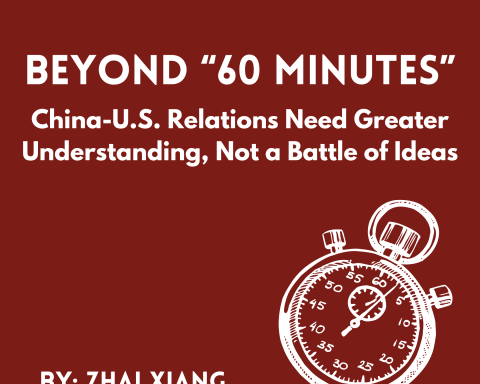Many voters are not enthusiastic about a possible rematch between Trump and Biden. Nevertheless, this will probably be the case. What leads to the current dilemma?
A rematch between two old, disliked candidates is likely to come November, resulting from partisan dysfunction and fracture. Both parties lack clear platforms or agreement on policies and priorities.
Meanwhile, both parties have candidates who want the Oval Office and are not thinking about party building and the good of the nation at present. Trump has no clear successor nor Biden and the race is now about their personalities, not policies or politics.
We have a situation with incredibly low approval of both candidates and no new, real competition, suggesting low engagement and interest and thus low turnout – so the base that supported Biden, for instance, may not show up this time. The question is, will Trump stir up enough interest in the battleground states to win, and it is too early to figure that out.
The larger issue that the nation faces here and is represented in the Presidential race is that the country faces a generational problem where older generations are living longer, not retiring, and not stepping aside gracefully. Due to a host of factors, older Americans have accumulated a considerable amount of wealth and power while housing values have skyrocketed. This has all pushed down quite a bit of mobility among younger generations.
We see many in Gen X not rising to the levels of their parents at the same age, and Millennials and Gen Z are being characterized as living in extended adolescence, and they cannot support themselves with the current cost of living. Generational replacement and change have basically stagnated now.
In one of your latest essays, you wrote that “neither Democrats nor Republicans are the majority party in the United States; most Americans identify as independents. Appealing to the American middle is what wins general elections.” You also cautiously wrote that Trump might be on a path to winning those people. What is your analysis?
According to new data from Gallup published in January 2024, Americans have increasingly identified as independents over the past 30 years, now representing the largest bloc of Americans (43 percent). An equal 27 percent of Americans identify as Republicans and Democrats, the lowest point for Democrats in Gallup’s data. This is not a new trend, either. In every presidential election since 2012, Americans have overwhelmingly identified as independents compared to identifying as a Republican or Democrat.
Many voters are unhappy with President Biden—his approval rating of just 33 percent is a record low for any president in the last 15 years – and the way the federal government has managed a host of issues, including the migrant crisis and high cost of food. Many Americans and independents now see Trump as a better choice and Biden may not be able to defeat Trump a second time. Trump may not think of himself as a strategic candidate who moves away from his base, ideology, and philosophy, but his positions may resonate with a large number of critically important independents and send him back to 1600 Pennsylvania Avenue.
Two caveats are worthwhile to note. The first is that there is a lot of time between now and the November Election Day. Quite a bit can happen that could change the race; circumstances that we simply cannot predict – from something like Biden’s age or Trump’s legal troubles. Second, a number of key states will decide where the electoral college votes go and which way the election will tip regardless of the national sentiments and the state of the parties. The 6 states in play are Pennsylvania, Wisconsin, Michigan, North Carolina, Arizona, and Georgia, and these are not easy calls yet at all. They are a mix electorally in recent years, and they have internal questions about cities and suburbs, race, and economic development. So, expect a lot of attention in these states, but it really is early at this point.
In 2015, you co-authored an article in Washington Post titled “The top 10 reasons American politics are so broken.” Do you think the ten reasons are still relevant today?
Sadly, little has changed structurally in the past decade or so to make things better in the United States. If anything, social media has made everything worse by cocooning groups into echo chambers, giving stronger voices to extremism, and allowing groups to organize that have no interest in moving to the middle or trying to work with others. This is all making fixing the broken politics much harder.
In the Ten Reasons article, you stated that immigration leads to larger racial and ethnic divisions. Immigration is a hotly debated issue in this cycle’s election. Do you predict that the U.S. has reached a tipping point in slowing immigrants to the country, just like before and after World War I?
The nation greatly reduced immigration in the years before and after World War I. In the decades that followed, the percentage of immigrants living in the United States plummeted. Data shows the degree of polarization in the House, which rose along with the increasing percentage of the foreign-born population when the country reopened its borders beginning in the 1960s.
Many social scientists have noted that ethnic uniformity makes it easier for groups to reach an agreement, and Robert Putnam famously wrote in Bowling Alone that immigration and diverse communities actually reduce social capital between ethnic groups as well as trust within the groups themselves. Putnam found that trust, even for members of one’s own race, is lower, altruism and community cooperation rarer, and friendships are fewer. What we are seeing now in the U.S is real withdrawal from the public sphere, withdrawal from communal life, and high levels of isolation – which is something the US Surgeon General has called an epidemic. Putnam writes: “In colloquial language, people living in ethnically diverse settings appear to ‘hunker down’—that is, to pull in like a turtle” and we are seeing just that and the real negative polarizing consequences.
To some extent, the Cold War united Americans, as you suggested. We see today that a bipartisan agreement has formed that China is a common threat. Do you think China will serve as the era’s “Soviet Union” in this regard?
If we look at historical trends, big shocks such as 9/11 or existential threats like the Cold War can serve as powerful forces to help unite peoples and make great strides; the U.S.’s work to reach the moon in the 1960s ahead of the USSR is a perfect example. When thinking about China today, however, I think the Soviet and Cold War comparisons are misplaced for a few critical reasons, but the most critical is that the world is now globalized, and demonizing an entire nation and its people is counterproductive and immature. The United States holds a number of very different policy views and beliefs about society. However, China and the U.S. are deeply tied together, neither country is going to disappear, and working together is simply the best course of action going forward. Demonizing difference only creates trouble. However, holding firm on principles is certainly acceptable. So, I hope that China does not become the USSR going forward. The U.S. had the capacity to go it alone during the Cold War; globalization has made that practically impossible, and cooperation is a must even when there may have to be pauses and delays over fundamental disagreements.




